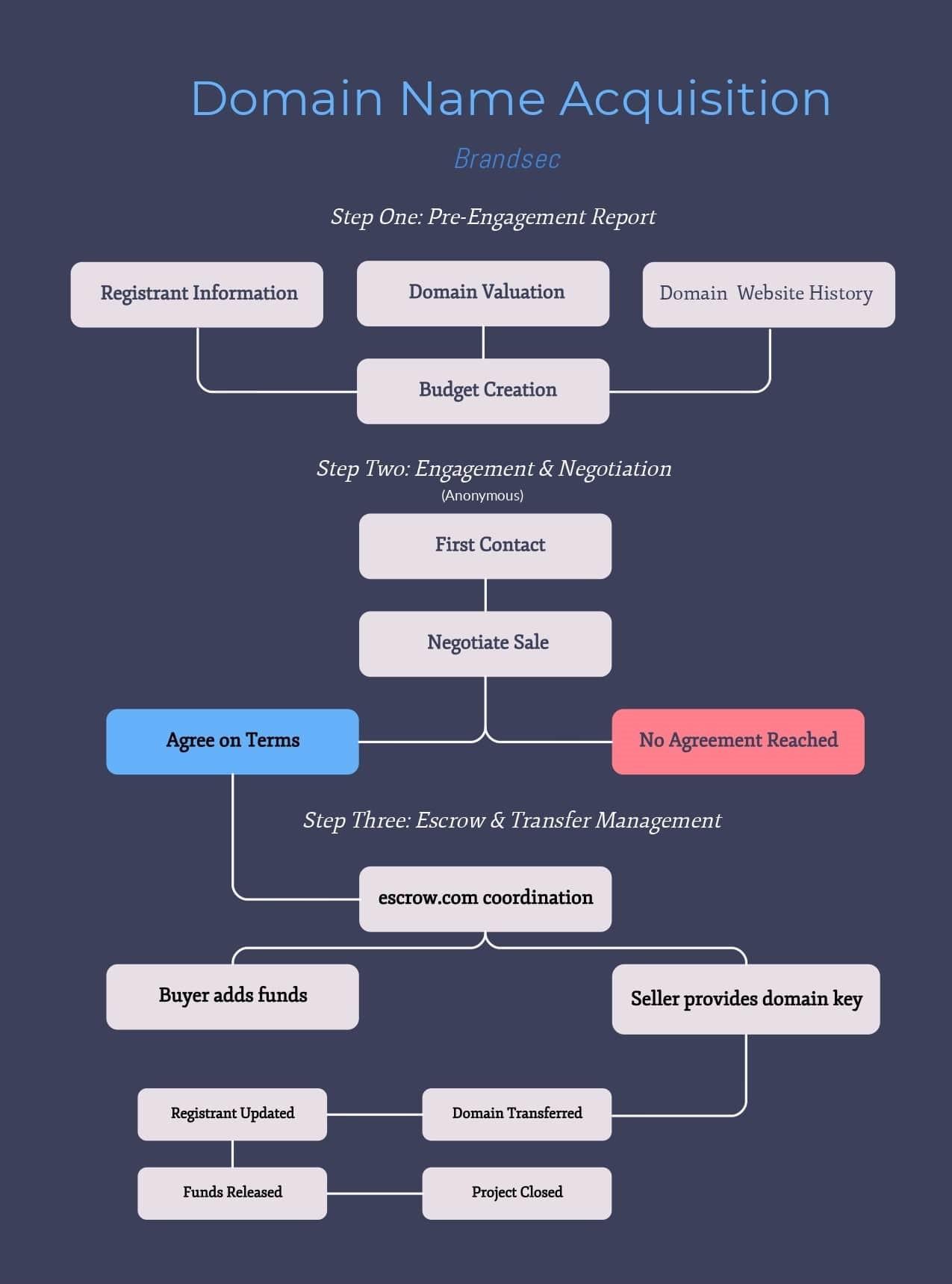Table of Contents
- Understanding the Fundamentals of Domain Name Flipping
- Identifying Valuable Domains Through Research and Trends
- Mastering the Art of Domain Acquisition for Profit
- Effective Marketing Strategies to Sell Your Domain Names
- Navigating the Legal Considerations in Domain Flipping
- Q&A
- Final Thoughts
Understanding the Fundamentals of Domain Name Flipping
Domain name flipping is a fascinating venture that involves buying, selling, and trading domain names for profit. To succeed in this realm, it’s essential to grasp a few key principles. First, understanding the market trends can significantly impact your acquisition strategy. Consider focusing on trending topics, emerging technologies, or popular culture, as these are often more valuable when it comes to resale. Additionally, leveraging tools like Google Trends or keyword research platforms can guide your choice, ensuring you purchase domains that have potential buyers eagerly searching for them.
Another fundamental aspect is the evaluation of domain names. Not all domains are created equal; their value often hinges on factors such as length, keyword relevance, and extension (like .com, .net, etc.). When assessing a domain, ask yourself the following questions:
- Is it easy to remember and spell?
- Does it contain competitive keywords?
- What is the domain’s history and age?
| Domain Type | Pros | Cons |
|---|---|---|
| .com | Highly trusted; recognizable | Often expensive |
| .net | Good alternative to .com | Less familiar to some users |
| .info | More affordable | Associated with spam |
establishing a robust network and marketing approach is crucial for successful flipping. Joining online forums, social media groups, and niche marketplaces can expose you to a broader audience interested in buying domain names. Additionally, developing an effective marketing strategy—such as SEO techniques, utilizing social media marketing, or even email campaigns—can enhance the visibility of your domains. Remember, the right buyer is out there; it’s just a matter of linking your valuable domains with prospective purchasers.


Identifying Valuable Domains Through Research and Trends
In the fast-paced world of domain flipping, conducting thorough research can significantly enhance your chances of identifying lucrative opportunities. One effective strategy is to evaluate market trends systematically. This includes monitoring popular keywords, trending topics, and emerging industries that are likely to gain traction in the coming months. By focusing on domains that incorporate these elements, you can position yourself advantageously in the marketplace. Tools like Google Trends or keyword research platforms can provide real-time insights into what terms are gaining popularity.
Additionally, understanding the historical data surrounding a domain can offer invaluable insights into its potential value. Analyze metrics such as past ownership, previous sales prices, and current traffic trends. Websites like Whois.net or DomainTools can provide historical ownership information, while platforms like SEMrush and Ahrefs can shed light on traffic statistics and backlink profiles. Look for domains that have a history of solid traffic to validate their future worth, as established domains tend to attract buyers more quickly.
Beyond individual domain metrics, you should also stay informed about larger market trends within the domain industry itself. Consider factors such as economic shifts, technological advancements, and changes in consumer behavior that may affect domain value. For instance, the rise of remote work has led to an increased demand for online services, resulting in a spike in interest for domains related to home office equipment, virtual collaboration tools, and e-learning platforms. By aligning your domain investments with these shifts, you can boost both your chances of a successful sale and maximize your potential returns.


Mastering the Art of Domain Acquisition for Profit
In the dynamic world of online entrepreneurship, seizing the opportunity for domain acquisition can lead to remarkable profit margins. Savvy investors recognize that a well-chosen domain can be as valuable as prime real estate. Research your niche thoroughly to identify trending topics or emerging industries. By focusing on keywords that hold significant potential, you can acquire domains that resonate with high-value markets. Common strategies include:
- Monitoring upcoming trends using tools like Google Trends
- Participating in forums and communities to gather insights
- Utilizing domain name generators for creative ideas
Once you have your desired domains, the next step involves effective valuation. Assess the potential selling price by considering factors such as length, brandability, and existing keyword traffic. A simple way to evaluate domain value is to analyze comparable sales. Below is a concise table displaying recent domain sales to guide your pricing strategy:
| Domain Name | Sale Price | Date Sold |
|---|---|---|
| example.com | $100,000 | January 2023 |
| innovate.co | $25,000 | March 2023 |
| appsolutions.net | $15,000 | February 2023 |
recognizing when to sell is critical for maximizing return on investment. Stay attuned to market shifts and be ready to pivot as trends evolve. Establishing an online portfolio can aid in showcasing your acquisitions, attracting potential buyers. Leverage social media and auction platforms to reach a broader audience, ensuring your domains gain the visibility they deserve. Effective marketing strategies combined with the right timing can transform your domain flipping journey into a lucrative venture.


Effective Marketing Strategies to Sell Your Domain Names
To maximize the potential of your domain name sales, understanding your target market is essential. Identify niche markets where your domains would be particularly valuable. Research popular industries and emerging trends, and look for keywords within those niches that may enhance your domain’s appeal. Tailor your marketing messages specifically to these audiences, emphasizing the unique benefits of owning the domain. For instance, if you own a domain that includes a popular keyword in the tech sector, highlight how it could enhance a startup’s online presence.
Utilizing various online platforms can significantly increase your visibility. Listing your domains on marketplaces such as Flippa and Sedo is a good start. Additionally, consider leveraging social media channels to promote your domains. Create informative posts or advertisements that showcase the potential of each domain, providing clear and compelling reasons why potential buyers should act fast. Engaging in online forums and community groups related to domain investment can also expand your reach and foster connections with interested buyers.
| Marketing Strategy | Description |
|---|---|
| SEO Optimization | Enhance your website’s visibility using relevant keywords. |
| Social Media Advertising | Promote your domains through targeted ads on platforms like Facebook and Instagram. |
| Networking | Connect with other domain investors and buyers in specialized forums. |
| Email Marketing | Use newsletters to inform potential buyers about available domains. |


Navigating the Legal Considerations in Domain Flipping
When venturing into the domain flipping business, it’s essential to grasp the intricate legal landscape surrounding domain ownership and transfer. One of the primary considerations is ensuring that the domain name is free from any trademarks or copyrights. Before purchasing a domain, conducting a thorough search using reputable trademark databases can help you avoid potential legal disputes. This proactive measure can save you both time and significant financial resources.
Furthermore, be aware of the regulations set by ICANN (the Internet Corporation for Assigned Names and Numbers) regarding domain registration and transfers. Understanding these principles will help you navigate the domain registration process effectively, ensuring compliance with legal requirements. The following points summarize key ICANN rules to consider:
- Domain Ownership: Verify that the seller legally owns the domain and has the right to sell it.
- Transfer Policies: Familiarize yourself with the policies related to domain transfer to prevent unauthorized access or disputes.
- Renewal Fees: Be mindful of ongoing renewal fees and obligations to maintain ownership of the domain.
it’s prudent to consult with a legal expert who specializes in intellectual property or e-commerce law. Having professional guidance will not only enhance your understanding of the relevant laws but also equip you to navigate potential challenges more effectively. Below is a simplified comparison of the common legal aspects to keep in mind while flipping domains:
| Legal Aspect | Description |
|---|---|
| Trademark Search | Verify domain names for existing trademarks to avoid infringement. |
| Ownership Verification | Confirm the current owner can legally transfer the domain. |
| Transfer Regulations | Understand ICANN rules governing domain transactions. |

